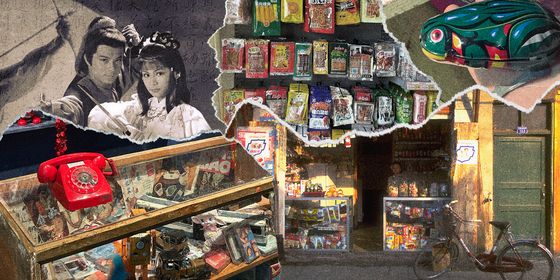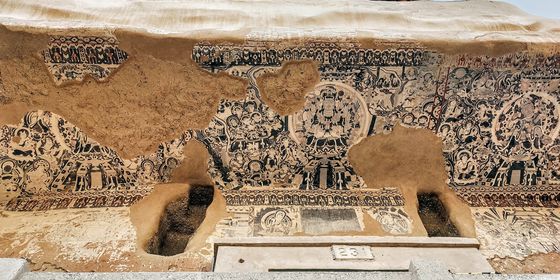Deep dive into the story of a Chinese woman in a men’s world
China Lights is a new bi-monthly column consisting of first-person narratives from ordinary Chinese people, compiled by Huang Chenkuang. The column focuses on marginalized people whose life stories often pass by unheard.
Wang Xiuxiang
Female, 62, from Shandong province, hall porter
I was born on a spring day, so my nickname is “Little Spring.” That’s what everyone in my village calls me. None of them knows the full name that is listed in my household register.
The Great Leap Forward began in the same year I was born. Each household smashed every iron object they owned in order to make steel. We ate shared canteen food in the commune. Many people starved, and some even died of starvation. To fill our bellies, we ate anything we could find. I remember eating bran. It tasted terrible; even the pigs wouldn’t touch it.
My family was so poor that we could barely afford to eat, let alone pay for my school fees. When the new school year started, I joined the other children in the village to register and queue for textbooks. When it was my turn, I was told there were no books for me since my family couldn’t pay for tuition. I left empty-handed.
After that, I never stepped foot into a school again. My parents told me it was OK for girls not to go to school: “As long as you know how to count, that’s enough.” Of my three siblings, only my older brother went to school.
Since I wasn’t attending school, I helped around the house. I would cut ragweed and catch locusts. I’d catch 20 or 30 of locusts, tie them to a string, and feed them to the roosters at home.
When I turned 12, I qualified to work in the village commune. There, I was paid in “work points”: two points for each day of work. It was only in 1978, when China de-collectivized agriculture, that each household could reap what they planted. I was given two plots of land for my own, but the grain was taxed. I remember we paid 150 kilograms of grain in tax each year. Usually, after paying the tax, we didn’t have enough left for ourselves.
I turned 20 that year. A matchmaker introduced me to someone from a neighboring village. She took me to that family for a quick visit. They bought some cloth to tailor me a new suit and took me to a photography studio for a photo. That completed the betrothal. My husband and I didn’t meet until I officially married him, more than two years after that visit.
Back then, marriages were arranged by the parents, and it was seen as shameful to have a romantic relationship. If you were caught, you’d be strung up and beaten. Several girls in my village, some a few years younger than me, killed themselves by drinking pesticide because they didn’t want to marry the man their families had arranged for them.
All of the couples of arranged marriages I know fought constantly after marriage. My husband and I were the same. Every day, household chores were endless: feeding the pigs and cows, harvesting the crops…We usually came back home exhausted. Who wouldn’t lose their temper after a day like that? When life is difficult, people’s tempers usually grow worse. It was not until life slowly got better, and we didn’t need to worry about our next meal, that my husband and I stopped arguing all the time.
Now, decades into our marriage, I can’t say that there has ever been affection between us. He is very reserved. He rarely talks, and busies himself with work all day. We don’t have any shared interests and have little to say to each other.
Though I’m illiterate, both of my sons went to college. To pay for their school fees, I took any job I could find. Since I can’t read, there are few job options for me. Even working as a nanny in the city requires literacy.
In the past, I would go to construction sites and carry cement bags with the men. Each pack weighed over 10 kilograms. I carried them up endless sets of stairs, sometimes all the way up to the 26th floor. My legs would tremble after just one trip, but I couldn’t take a break. As soon as I finished one trip, I would rush back down for the next.
I carried cement bags for 11 years. I was originally paid 30 kuai per day, and that slowly rose to 100 kuai. The men got paid more—150 kuai per day. We never settled in one place, but went wherever there were construction jobs to be found. Of all the high-rises we’ve built over the past years, I couldn’t even dream of living in any of them.
As I got older, working in construction sites became too hard on my body, so I turned to other odd jobs. Working as a porter is a lot easier, but it’s still a lot of work—cleaning, answering the door, dealing with deliveries. From morning to night, I can’t excuse myself for even a second.
My younger son isn’t married yet, so the time hasn’t come for me to take it easy. After I put him through school, I’ll need to think about getting him a wife. The bride price will be at least 100,000 yuan, and over 100,000 yuan for the down payment on an apartment. Thinking about all of this, there seems to be no end to it all.
I find life to be pretty meaningless. I’ve worked so hard my whole life to raise my children, but even if I support them all the way until they start their own families, I might not be able to rely on them in the end. There’s an old man in my village who had three sons, but no one was around when he got sick. He died alone, and nobody found him until days later when his body started to stink. It was so tragic.
Each day seems just like the last. I can’t remember ever feeling particularly happy. The most recent time I felt happy was the day I went to register for social insurance. They asked for my signature, but I didn’t know how to write my name. So I looked in my household registration book and slowly copied out the characters, stroke by stroke.
It took me a long time. When I finished, I looked at the three characters in my childlike scrawl: 王秀香. It gave me a good laugh.
Cover Image from VCG
Huang Chenkuang is a writer based in Beijing originally from Jiangxi province. She is the founder of the Beijing Lights project with literary arts collective Spittoon, sharing voices from Beijing’s 21.7 million humans.












